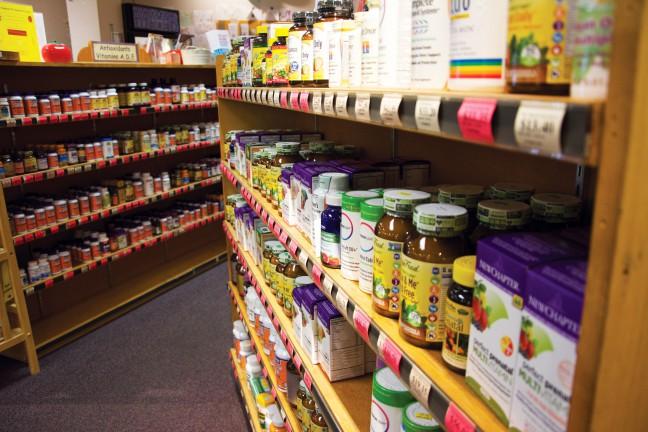The University of Wisconsin School of Pharmacy launched a new master’s degree named the Master of Science in Pharmaceutical Sciences: Applied Drug Development.
According to the degree’s website, this new program offered by the highly-ranked School of Pharmacy is 31 credits in total and is made to better prepare students for careers right out of college. The program is an opportunity for new or recent graduates in biochemistry, biology, chemistry or chemical engineering to take a “fifth year” to learn and sharpen their skills, both in the laboratory and the classroom, according to a UW press release.
Moreover, classes are taught both online and in person, allowing for beneficial hands-on experience for students. According to the website, the practical and professional skills students can acquire from the program are necessary for any lab-based job in the pharmaceutical industry, thus helping to improve students’ competitiveness in the job market after graduation.
The website also said the degree can be completed in just one calendar year due to its accelerated pace. According to the press release, this accelerated pace can be adjusted to fit individuals’ goals, and the blending of online and in-person education allows for a much higher degree of flexibility.
In addition, according to the degree’s website, this degree will be taught in three semesters, with the final semester being a summer capstone project.
Program Director of the Master of Science in Pharmaceutical Sciences at the School of Pharmacy Eric Buxton said this master’s degree is made specifically for students who are planning on working in the biopharmaceutical industry after graduation, and the program aims to set those students up for career success. This is also why the final project over the summer consists of a 12-week internship for students to gain experience in the field and make meaningful connections.
“We work with these [local] companies to make sure the skills we provide are skills they hire for,” Buxton said.
Buxton also said while students will be working throughout the course with local companies, the skills they acquire will be transferable to either coast, making sure students are able to keep their options open for post-graduate opportunities.
According to the press release, this program focuses on skills such as using typical lab instruments, drug action and data analysis. Additionally, according to the degree’s website, the experience of working in a regulated lab is a unique opportunity for students, as it allows them to familiarize themselves with a lab setting and helps them stand out among other job applicants.
“It is a focused degree that sets [students] up to work in the larger [pharmaceutical] industry,” Buxton said.
To help create curriculum for this degree, the university consulted with companies in the area, according to the press release. Covance, an organization that conducts research on drugs that may be used by pharmaceutical businesses in the future, was one such company.
Executive Director of Global Metabolism and Environmental Science at Covance Donald McKenzie spoke about Covance’s assistance in making the curriculum for this degree.
“We were actually involved, working with the College of Pharmacy in terms of building [this degree], getting it set up to help prepare students for the lab-based jobs of the future,” McKenzie said. “[It allows students to] think about data critically and hit the ground running and be more marketable in the workforce.”
McKenzie said this degree’s curriculum is a combination of teaching basic skills that are needed in labs on which students generally have a weaker grasp, such as rules and using lab equipment, and simultaneously preparing them for a lab-based job.
McKenzie also appreciates this aspect of the new degree as it cuts down on time companies spend training students on how to do simple lab procedures, thus potentially leading to higher productivity.
McKenzie said, however, the new degree should not be perceived as being better than existing degrees offered by the School of Pharmacy.
“I wouldn’t say it’s better or worse than, I would say it’s complimentary, depending on what the student is looking to do,” McKenzie said.
As McKenzie said, since this degree is made for people who want to work lab-based jobs, the utility of this program largely depends on each student’s personal goals.
According to the degree’s website, sample courses for the degree include Working in a Regulated Environment, Current Trends in Drug Discovery and Development and Laboratory and Instrumentation Methods. The first class of the program is scheduled to start September 2020.


